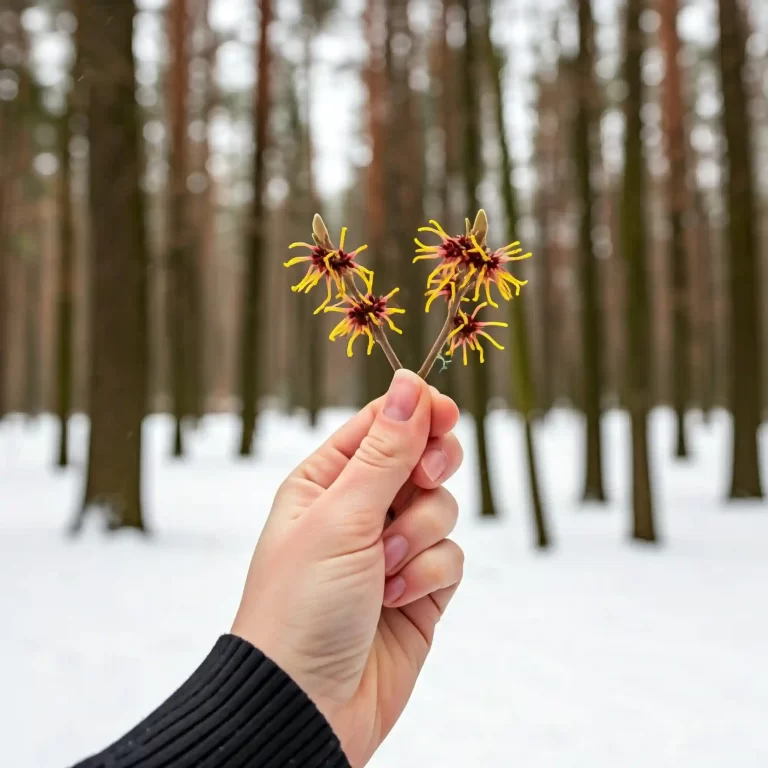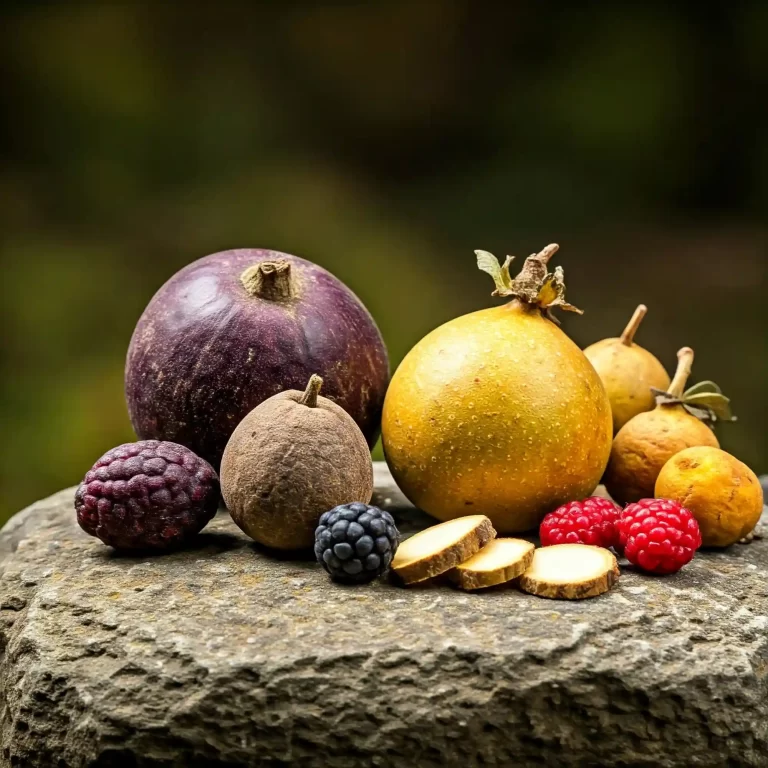We all know the feeling – tossing and turning in bed, desperately counting sheep, but sleep remains elusive. In our fast-paced world, a good night’s rest often feels like a luxury. But what if there was a natural, fragrant way to coax your mind and body into a state of tranquility? Enter the enchanting world of “good night flowers.” These blooms, with their soothing scents and calming properties, can transform your bedroom into a haven of peace, paving the way for sweet dreams and a revitalized morning. Let’s explore the science behind these floral wonders and discover seven blossoms that can truly sweeten your slumber.
The Science Behind Good Night Flowers
The connection between flowers and sleep isn’t just folklore; it’s backed by science. Certain flowers contain compounds that interact with our senses and nervous system, promoting relaxation and reducing anxiety. Let’s look at two prime examples:
- Lavender: The scent of lavender has been shown to decrease heart rate and blood pressure, key indicators of relaxation. Studies suggest that inhaling lavender essential oil can improve sleep quality, especially in individuals with insomnia.
- Chamomile: This humble daisy-like flower contains apigenin, an antioxidant that binds to receptors in the brain that promote sleepiness. Sipping chamomile tea before bed is a time-honored tradition for inducing relaxation and preparing for a restful night.
These are just a couple of examples, but the world of botany is full of surprises. As we delve deeper into the realm of good night flowers, we’ll uncover more of their sleep-enhancing secrets.
Sleep-Promoting Compounds in Flowers
| Flower | Compound | Effect |
| Lavender | Linalool | Reduces anxiety and promotes relaxation |
| Chamomile | Apigenin | Binds to brain receptors that induce sleepiness |
| Jasmine | Benzyl benzoate, linalool | Improves sleep quality and reduces anxiety |
| Gardenia | Gardenoside | Anti-inflammatory and sedative properties |
Remember, the power of scent is remarkable. The subtle fragrance of these flowers can trigger a cascade of physiological responses, helping to ease your mind and body into a peaceful state conducive to sleep.
7 Flowers Perfect for Wishing Sweet Dreams
Now, let’s unveil our handpicked selection of good night flowers. Each one boasts unique qualities that contribute to a serene bedtime ambiance.
1. Lavender: The Queen of Calm
With its signature purple hue and soothing aroma, lavender is synonymous with relaxation. It’s a classic choice for aromatherapy and has been used for centuries to promote restful sleep. Consider placing a bouquet of fresh lavender on your nightstand or tucking a lavender sachet under your pillow for a gentle, calming scent throughout the night.
- Growing Tip: Lavender thrives in sunny spots with well-drained soil. It’s a relatively low-maintenance plant that can even be grown in containers.
- Symbolic Meaning: Lavender represents purity, serenity, and devotion. It’s the perfect flower to express your love and well wishes for a peaceful night’s sleep.
2. Chamomile: A Cup of Comfort
Chamomile’s gentle, apple-like scent and delicate white petals evoke a sense of tranquility. It’s a popular choice for bedtime teas, and studies have shown that it can help reduce anxiety and improve sleep quality. Consider incorporating a chamomile plant into your bedroom decor or brewing a cup of chamomile tea as part of your evening ritual.
- Growing Tip: Chamomile prefers full sun and well-drained soil. It’s a relatively easy herb to grow and can be harvested for tea throughout the season.
- Symbolic Meaning: Chamomile symbolizes patience, peace, and rest. It’s a gentle reminder to slow down and embrace the stillness of the night.
3. Jasmine: A Fragrant Embrace
Jasmine’s intoxicating aroma has been cherished for centuries, and its delicate white flowers are a sight to behold. Research suggests that the scent of jasmine can improve sleep quality and reduce anxiety. Consider placing a jasmine plant near your bed or using jasmine-infused essential oil in a diffuser for a blissful bedtime experience.
- Growing Tip: Jasmine prefers warm temperatures and plenty of sunlight. It can be grown indoors or outdoors, depending on your climate.
- Symbolic Meaning: Jasmine symbolizes purity, beauty, and sensuality. It’s a romantic flower that can add a touch of elegance and passion to your bedroom.
4. Gardenia: Intoxicating Beauty
Gardenias are known for their large, creamy white blooms and their heady, sweet fragrance. This captivating scent has a calming effect on the mind and body, making gardenias a wonderful addition to your bedroom. Their intoxicating aroma can fill the air with a sense of tranquility, setting the stage for a restful night’s sleep.
- Growing Tip: Gardenias prefer acidic soil and partial shade. They can be a bit finicky to grow, but their exquisite beauty and fragrance make them worth the effort.
- Symbolic Meaning: Gardenias symbolize purity, joy, and secret love. They’re a perfect way to express your admiration and affection for someone special.
5. Moonflower: Nighttime Magic
As its name suggests, the moonflower blooms at night, unfurling its large, white petals under the moonlight. This enchanting flower is associated with tranquility and peace, making it a fitting choice for your bedroom. Its subtle, sweet fragrance adds a touch of magic to the nighttime ambiance, creating a serene atmosphere conducive to sleep.
- Growing Tip: Moonflowers are fast-growing vines that prefer full sun and well-drained soil. They’re a relatively easy plant to grow and can create a stunning visual display in your garden or on a trellis.
- Symbolic Meaning: Moonflowers represent mystery, magic, and dreams. They’re a reminder to embrace the beauty and serenity of the night.
6. Night-Blooming Cereus: A Rare Delight
The night-blooming cereus is a unique cactus that produces large, fragrant flowers that bloom only at night. This spectacle is a true wonder of nature, and the flower’s sweet scent can fill your bedroom with a sense of awe and tranquility. Although it requires specific growing conditions, the night-blooming cereus is a captivating addition to any plant collection.
- Growing Tip: Night-blooming cereus prefers warm temperatures and well-drained soil. It requires plenty of sunlight and can be grown indoors or outdoors, depending on your climate.
- Symbolic Meaning: The night-blooming cereus symbolizes fleeting beauty and the importance of seizing the moment. Its rare blooms remind us to appreciate the ephemeral nature of life and find joy in the present.
7. Evening Primrose: Subtle Beauty
The evening primrose is a delicate wildflower that opens its pale yellow petals in the evening, releasing a subtle, lemony fragrance. This understated beauty is a symbol of healing and renewal, making it a comforting presence in your bedroom. Its gentle scent and soothing properties can help to ease your mind and prepare you for a restful night’s sleep.
- Growing Tip: Evening primrose prefers full sun and well-drained soil. It’s a relatively easy plant to grow and can self-seed, creating a natural wildflower meadow in your garden.
- Symbolic Meaning: The evening primrose represents healing, hope, and new beginnings. It’s a reminder that even in the darkness, there is always light and the promise of a new day.
Gifting Good Night Flowers: Thoughtful Gestures
Flowers have a language of their own, and gifting “good night flowers” is a beautiful way to convey your love, care, and well wishes for restful sleep. Whether it’s for a romantic partner, a friend, or a family member, the gesture is sure to be appreciated. Here are a few ideas to inspire you:
- Elegant Bouquet: A classic bouquet of lavender, chamomile, or jasmine is a timeless and thoughtful gift. Consider adding a personalized note expressing your wishes for a peaceful night.
- Potted Plant: For a lasting gift, consider a potted lavender or chamomile plant. The recipient can enjoy its beauty and fragrance for weeks to come, and it serves as a constant reminder of your thoughtfulness.
- DIY Arrangement: Get creative and craft a unique arrangement using a combination of good night flowers. Incorporate elements like dried flowers, herbs, or essential oils for a personalized touch.
Choosing the Right Flowers
When selecting good night flowers, consider the recipient’s personality and preferences. Do they prefer subtle scents or bolder fragrances? Are they drawn to delicate blooms or vibrant colors? You can also tailor your choice based on the occasion:
- Romantic Gesture: Red roses paired with lavender convey love and passion with a touch of tranquility.
- Get Well Soon: A cheerful bouquet of chamomile and sunflowers offers a message of comfort and healing.
- Birthday Surprise: A vibrant arrangement of jasmine and gardenias celebrates life and beauty.
If you’re unsure what to choose, consult with a local florist who can guide you toward the perfect selection. And for those who want to go the extra mile, consider a flower delivery service to surprise your loved ones with a fragrant bouquet right at their doorstep.
Flower Delivery Services: Convenience at Your Fingertips
In today’s busy world, flower delivery services offer a convenient way to send your good night wishes. With a few clicks, you can choose a beautiful arrangement, add a personalized message, and have it delivered directly to your loved one’s home or workplace. This thoughtful gesture is sure to brighten their day and set the stage for a peaceful night’s sleep.
Beyond the Bouquet: Incorporating Flowers into Your Bedtime Routine
While a beautiful bouquet or potted plant can instantly elevate your bedroom’s ambiance, there are other creative ways to infuse the calming essence of good night flowers into your bedtime routine.
- Aromatherapy: Essential oils extracted from lavender, chamomile, and jasmine can be diffused into the air, creating a soothing and relaxing atmosphere. You can also add a few drops to a warm bath or sprinkle them on your pillow for a subtle, lingering fragrance.
- Dried Flowers: Create sachets filled with dried lavender, chamomile, or other fragrant flowers and place them in your drawers, closets, or under your pillow. The gentle scent will infuse your linens and create a calming environment.
- Floral Decor: Incorporate floral elements into your bedroom decor. Hang botanical prints, display a vase of fresh flowers on your nightstand, or adorn your bed with a floral throw blanket. These visual cues can evoke a sense of peace and tranquility.
Creating a Relaxing Bedtime Atmosphere:
- Dim the Lights: Soft, warm lighting helps to signal your body that it’s time to wind down. Consider using dimmer switches or candles to create a relaxing ambiance.
- Play Soothing Music: Gentle music or nature sounds can further enhance relaxation and drown out any distracting noises.
- Unplug from Technology: The blue light emitted from electronic devices can interfere with sleep. Avoid screens for at least an hour before bed.
- Read a Book: Reading a calming book can help to quiet your mind and prepare you for sleep.
By incorporating these simple practices into your routine, you can create a haven of peace and tranquility in your bedroom, promoting a deeper and more restful sleep. Remember, the goal is to create an environment that encourages relaxation and sets the stage for sweet dreams.
FAQs About Good Night Flowers
Even seasoned gardeners might have some questions about incorporating these nighttime blooms into their lives. Let’s tackle a few common queries:
- Can good night flowers really improve sleep?
Yes, certain good night flowers can indeed contribute to better sleep. The science behind it lies in their calming scents and sleep-promoting properties. Lavender, for example, has been shown to reduce anxiety and improve sleep quality, while chamomile’s gentle properties can help you relax and unwind before bed.
- Are there any flowers to avoid in the bedroom?
While most flowers are harmless, some can be overly fragrant or trigger allergies. It’s best to avoid heavily scented flowers like lilies or hyacinths in the bedroom, especially if you’re sensitive to strong smells. Also, be mindful of any potential allergens and choose flowers that are safe for you and your loved ones.
- How long do cut good night flowers typically last?
The lifespan of cut flowers varies depending on the type and how they’re cared for. Generally, most good night flowers can last anywhere from 5 to 10 days with proper care. To extend their vase life, make sure to trim the stems, change the water regularly, and keep them away from direct sunlight and heat.
- What are some affordable good night flower options?
If you’re on a budget, there are plenty of affordable good night flowers to choose from. Chamomile, lavender, and evening primrose are readily available and relatively inexpensive. You can also opt for potted plants, which can last much longer than cut flowers and provide ongoing enjoyment.
Remember, the most important thing is to choose flowers that you find calming and enjoyable. Whether it’s a single stem of lavender or a lush bouquet of jasmine, the right flowers can transform your bedroom into a sanctuary of peace and promote a restful night’s sleep.
Conclusion
In the hustle and bustle of modern life, a good night’s sleep is more precious than ever. Good night flowers offer a natural, beautiful, and fragrant way to invite tranquility into your bedroom and promote restful slumber. From the calming scent of lavender to the delicate beauty of chamomile, these blooms can transform your space into a haven of peace.
Whether you choose to adorn your nightstand with a fresh bouquet, diffuse essential oils, or incorporate floral elements into your bedtime routine, the power of good night flowers is undeniable. Their soothing properties, coupled with their symbolic meanings, can create a sense of calm and well-being, paving the way for sweet dreams and a revitalized morning.
So, the next time you’re struggling to unwind after a long day, consider turning to nature’s lullaby. Let the gentle fragrance and beauty of good night flowers lull you into a peaceful sleep, leaving you feeling refreshed and ready to embrace the new day.
Do you have a favorite good night flower? We’d love to hear about your experiences and recommendations! Share your thoughts in the comments below. And if you’re looking for more gardening inspiration and tips, be sure to explore our other articles and resources. Sweet dreams!







